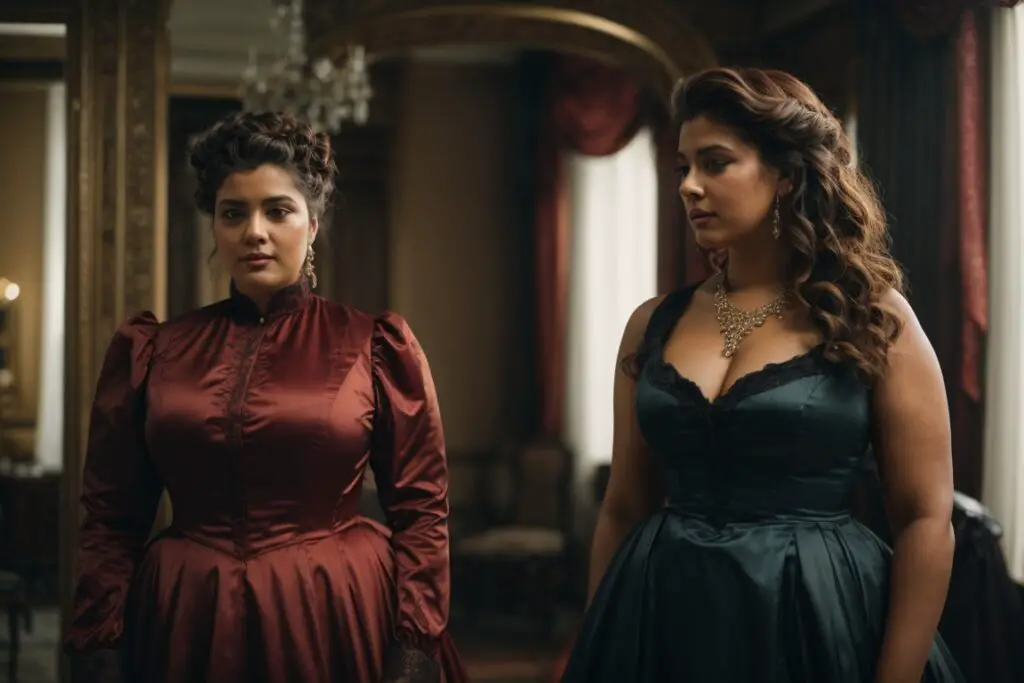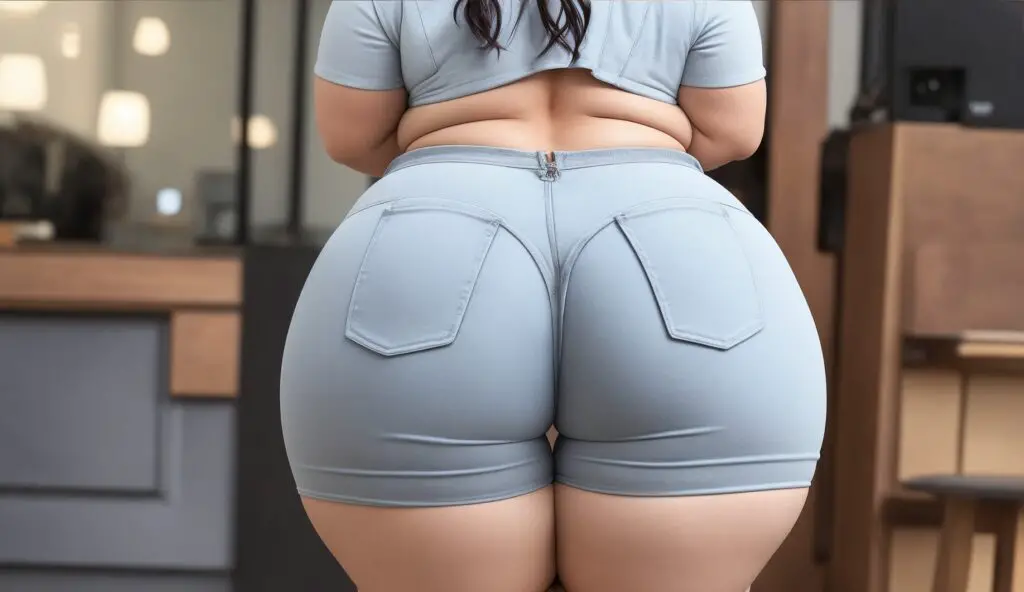A lot of debate has ensued on whether labeling women according to their size is an appropriate exercise. Particularly, the use of the term plus size has received a lot of criticism and, ironically, approval from various camps. Make sure to read on to find out if the term plus size is really offensive.
The label plus size has evolved to encompass the largeness of a woman’s body and the negative connotations, comparisons, and degrading treatment that accompanies such physique. It is because of this that the term is deemed offensive.
In addition to women considered plus size, large fractions of regular-sized or smaller women are equally vocal on the topic. When it comes to body image and perceptions on what should and should not be the norm in beauty standards, there is much that is up for debate. Many of our personal beliefs, perceptions, and outlook on life, culture, habits, and socialization weigh heavily on what we stand for. In this matter, body size, or rather labeling body sizes, is no exception.
What do Plus Size Women Have to Say?
Various women have different perceptions of the term ‘plus-size.’ Some contend that the label should be altogether dropped. There is no legitimate excuse as to why women should be labeled according to their dress size. Why objectify women? And refer to them in the same manner as we would refer to a bucket of potatoes or pounds of flesh? The thrust of their argument revolves around the somewhat rhetorical question ‘what is there to gain with the use of the term plus size’?
On the flip side, some women value, appreciate, and celebrate the term plus size to refer to their distinct body physiques. Being categorized as plus size seems to offer more perks and somewhat a rightful estimation and appreciation of their unique silhouettes. Arguably, they believe that this mandates a greater standard of caution, thoughtfulness, and care when handling plus-sized women.
This debate continues to rage on- continuously influenced by current fashion trends, perceptions, and fashion sales. There are many reasons, though different and unique, as to why some completely disagree with the term and likewise divergent reasons why some support using it. It’s important to hear both sides of the divide so let’s delve right into it.
I am Okay with the Term Plus Size Because…
‘I am agreed because…’ said one woman who abruptly paused before answering quite affirmatively. I am not shy about my size! I know I’m big and I am okay with that!
This is what most of the women who embrace the term plus size have to say. They don’t mind being referred to as big because they know they are and are at peace with their looks. Another woman even went further in her response and asked, ‘What’s the harm?… I know how I look, how does a label that appreciates my size take away from that very fact?
Those who fall in this category really do resonate with a high level of confidence and self-acceptance. Additionally, these women’s views on plus size seem not to have any negative bearings. Plus-size simply means just that – your size is bigger than the rest, period.
At a keener glance, you’ll notice a subtle thread amongst all such women. These women are saying that they want to be called plus-size, but rather they do not mind being called plus-size. There’s a big disparity between the two. The question to be answered is whether, given the option, they would choose to be called plus-size in the first place. Why be designated by the size you fit in and the weight you carry? Why not something different? Something more important and meaningful?
Unfortunately, this segment of women is the minority.
Interestingly, the women who favor the term plus size have a narrow definition of the term; it’s just about size, and they are okay with their size, so they do not see any big deal with it. However, the world does not exist in a vacuum, and several overlapping and intertwining concerns, notions, beliefs, practices feed into what is labeled as plus-size today.
I Am Opposed To The Term Plus Size Because…
As Ashley Graham put it, the term plus size is used critically and condescendingly. It does not just refer to being bigger than the rest, but it is heavily associated with beliefs that you do not eat well, do not take care of your body, or are a lazy couch potato, etcetera. This is the reason why the greatest majority of women consider the term plus size offensive.
When you call someone plus size in today’s world, you are understood to mean careless, binge-eating, and lazy. Even though that was not your intention. Prevailing societal notions and degrading women of ‘plus size’ frames is the cause of all this havoc. If the term plus size did not carry all these evil connotations, would there still be a debate? I think not.
With a lot of body positivism and body awareness campaigns going around these days, more and more women are emboldened to speak out against the atrocities they suffer because of being ‘bigger than the expected.’ In this light, women have taken strides to disassociate themselves with people’s demeaning attitudes and perceptions against their silhouettes. Any accusing and degrading voice that rings through some terminology, labels, and phrases against bigger body frames are met with complete rejection.
Beauty comes in all shapes and sizes. That’s the gospel preached far and wide by body positivism campaigns the world over. Therefore, if all women are beautiful, it would be absurd to designate that some women’s sizes are unacceptable compared to others. It simply does not hold to the more current notions of beauty and body image as advocated by models such as Ashley Graham.
Another important argument on this side of the divide is that the term plus size disregards women’s unique physical traits. It’s used as a generic term slapped on anyone and everyone who wears a size 14 and over, regardless of their body shape, height, and other physical traits. It’s too simplistic and an overgeneralization – a blanket approach to fashion and beauty.
This merits concern as 68% of all US women wear a size 14 and over. Up until the body positivism movement, these women’s various physiques and unique physical features will have possibly never be considered worthwhile to be looked into, understood, appreciated, and celebrated. They would have continued wearing ‘extended designs.’ These designs are thoughtfully tailor-made for smaller women and extended in size to cover up all larger women’s surface areas. It does hurt to constantly be a side thought, a side statistic with no important or real value accorded to your existence, and yet you are the MAJORITY.
Fashion has always been specific to the needs of those considered ‘regular-sized.’ There are amazing fits for petite small women, taller, smaller women, and medium-height small women. There are fits for smaller women with broader shoulders, bigger busts, or smaller busts, and the list goes on and on. There is such great attention to detail regarding smaller women who make up the MINORITY and hardly any real attention and inquiry into the fashion needs of those wearing a size 14 and over! Ironical, right?
What Term is Politically Accurate?
For several people, this simplistic debate can be solved by a change in terminology. Instead of using the term plus size, more positive and warm phrases are used such as ‘curvaceous,’ ‘thicker,’ or ‘generous.’ Whereas this doesn’t altogether eliminate labeling, it allows for categorization identification of women using more positive and empowering terms. This casts bigger women in a more positive light. As opposed to being blamed for being big or assumed to not care about themselves or what they eat, etcetera, positive phrasing depicts them as admirable and equally normal people, just like the rest of us.
Positive phrasing is slowly but surely gaining momentum, especially among fashion brands and designers. As opposed to marking their clothes as plus size, more and more brands are opting to use less abrasive’ words such as ‘generous.’ Where size is used, bigger sizes are courteously marked as 14+ and nothing more. There is no mention of ridiculing words such as fat, plus, supersize, or obese.
The move has proven invaluable. Women are now more comfortable shopping, as they no longer feel lesser compared to those termed as ‘regular-sized or straight-sized. The labels are more appreciative of their bodies rather than judgmental. As further research is conducted on the market trends and sales of new fashion entrants into the ‘plus size’ scene, those with positive and empowering labels score highly when it comes to the shopping experience niche compared to those that do not use such positive labels.
Of course, several other factors determine how high or low a store or site will rank when it comes to customer experience. However, positive labels are increasingly becoming one of the key factors that shoppers consider.
Why Do We Even Need A Label For Women?
An important argument arises, as opposed to identifying a more correct and positive term for categorizing women around their sizes, why not abandon it altogether? Why can’t all women be categorized as women and clothing options made available in different sizes to cater to ‘women’?
The specificity accorded by these terms do nothing but create greater chasms in societal perceptions between larger and smaller-bodied women. Arguably, with a more inclusive approach,’ the conversation will turn on other essential elements instead of body size. Elements such as an individual’s values, personality, lifestyle choices, skills, abilities, fashion choices, and the like.
The Silent Ills Caused By Insensitive Terminology
Unknown to many, a lot of inequality and discrimination is perpetrated by the use of insensitive terminology. Greater stigma and pity are accorded to those considered plus size, which is not a good thing. Plus-size women are considered less capable, irresponsible, more prone to insecurity and other emotional vices than their smaller-bodied female counterparts. They, therefore, are disadvantaged when it comes to seeking leadership positions, obtaining jobs, or working in different industries.
It is quite baffling how society at large arrives at such conclusions. What does size have anything to do with performance and work output?
Another great ill is the depression and self-hate occasioned on ladies because of the constant disapproval of their looks by friends, family, or those around them. The constant pressure to look a particular way to be considered ‘okay’ or ‘beautiful’ can be crippling. Feeling like you are not good enough and, in some cases, that despite your efforts, you cannot be good enough has caused a lot of pain in the hearts of many, both young and old. It completely erodes any self-confidence and any persuasion of your value as a person.
However, these are just a few examples of the many ills perpetrated every day when society insists on labeling women according to their size.
Conclusion
The word plus size is increasingly being associated with negative notions and improper treatment towards larger women. The term carries with it society’s disproving remarks, attitudes, and false beliefs that are far from proven facts. Presently, more and more women advocate for something beyond the use of more empowering terminology; the abolition of size as a factor in categorizing women. That way, it is hoped, the differing treatment of women because of their body sizes will stop as a society will gradually appreciate the various looks of beauty without preferring one over the other.



